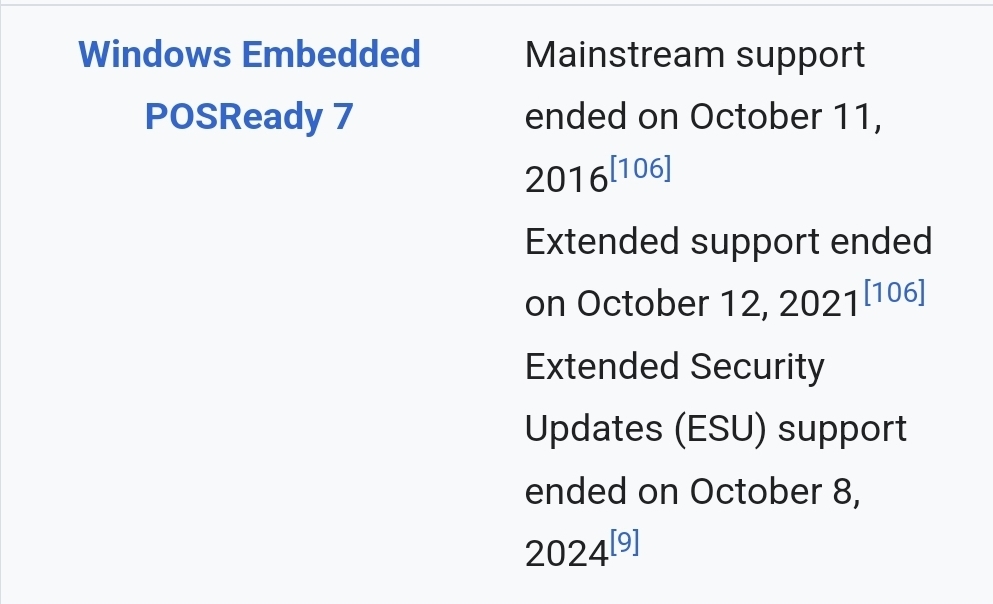this post was submitted on 08 Oct 2024
673 points (99.7% liked)
Technology
65390 readers
4648 users here now
This is a most excellent place for technology news and articles.
Our Rules
- Follow the lemmy.world rules.
- Only tech related content.
- Be excellent to each other!
- Mod approved content bots can post up to 10 articles per day.
- Threads asking for personal tech support may be deleted.
- Politics threads may be removed.
- No memes allowed as posts, OK to post as comments.
- Only approved bots from the list below, to ask if your bot can be added please contact us.
- Check for duplicates before posting, duplicates may be removed
- Accounts 7 days and younger will have their posts automatically removed.
Approved Bots
founded 2 years ago
MODERATORS
you are viewing a single comment's thread
view the rest of the comments
view the rest of the comments

Vista paved the way for Win7 by highlighting the abysmal driver and support issues. Which got significant work done on it so by the time Win 7 acme out things were in a good state.
Vista was, much like ME, was a decent OS hampered by its time and hardware, but have been meme'd into festering shitpiles.
I'm on board with your Vista-->7 thoughts, but I do take issue with ME. It never was a decent OS and it very much was a steaming shitpile. It was far too much new code stupidly rushed for the holiday season. I remembering installing it being a roll of the dice even with the same hardware. It would work, then it wouldn't, then it might work with some odd issues, then it deffo would not at all. Hours wasted trying.
I really did try, but never had a good experience with WinME and I know of no one else who did. Even first Vista was better (though saying that makes me shudder).
Well, it was more than that.
I actually did an interview at MS about a year after Win7 was released (was fresh out of college), and I asked a pretty pointed question about why the release quality seemed so… variable. The manager’s answer was that they had done entirely in-house QA for XP (we didn’t go into WinMe), outsourced the vast majority for Vista, and brought it entirely back in house for 7. He further mentioned they were taking a hybridized approach for 8. I remember questioning the decision, given the somewhat clear correlation between release quality and QA ownership, and got some business buzzword gobbledygook (which I took as “the real answer is so far above my pay grade that I can do absolutely fucking nothing about it”).
TL;DR: it was largely just profit-driven quality cuts done too aggressively, so they had to backstep and reinvest a couple times to normalize it for the user base.